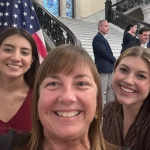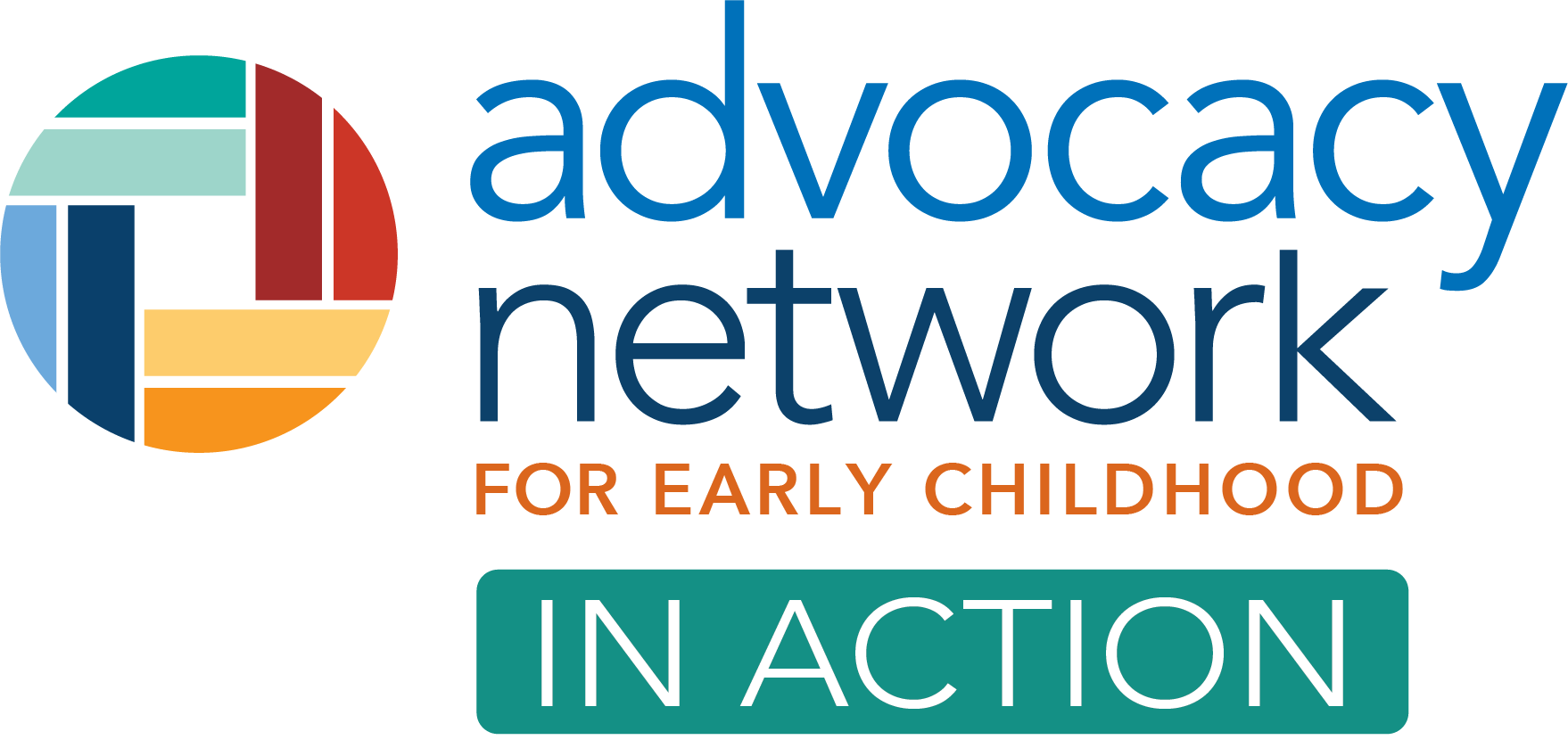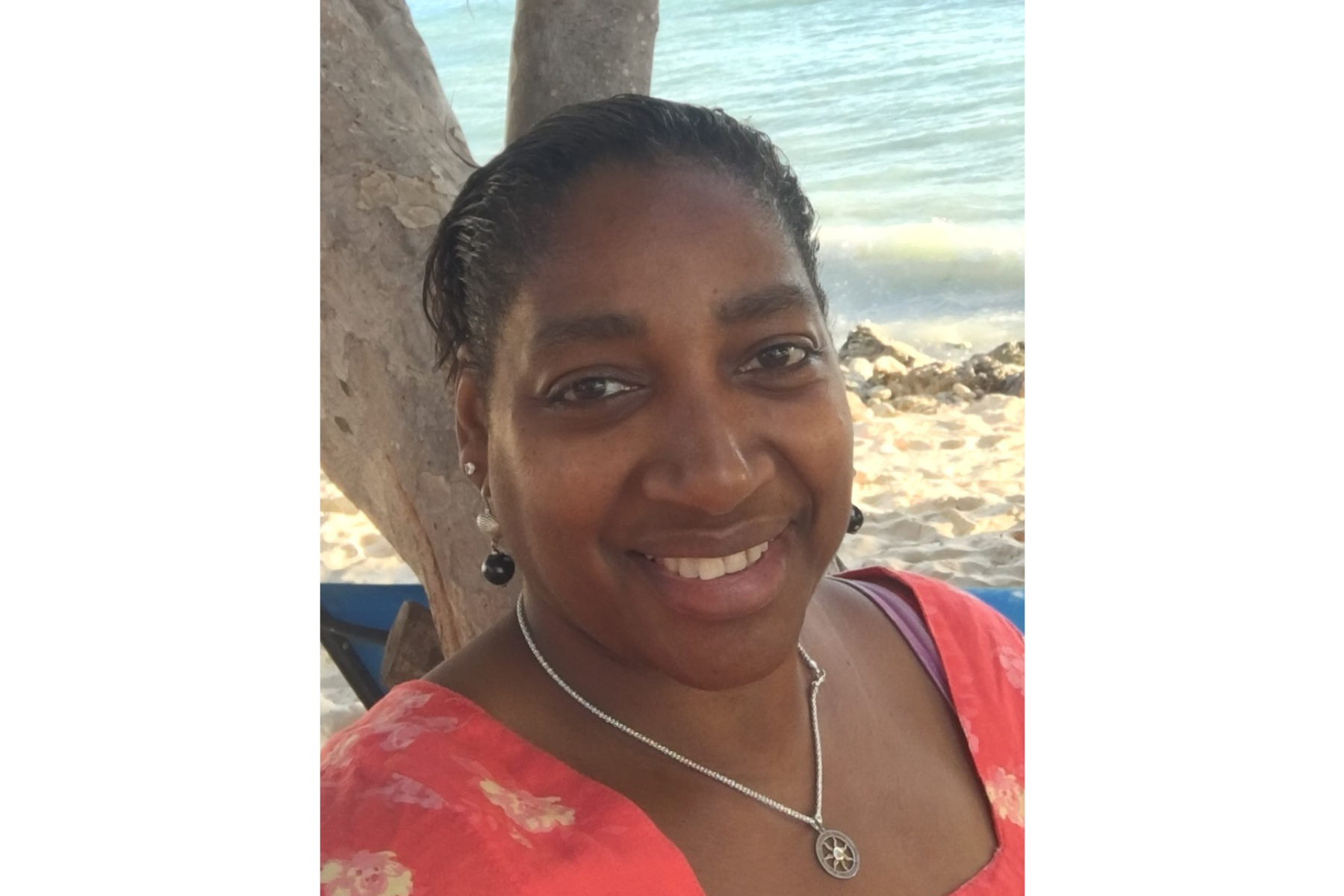Ask Lori Thames what drew her to early education, and she tells a story about her sister.
When her sister was ready to send her son to a child care program, she asked Thames to get a job at the program and keep an eye on her son.
“I love children. I love taking care of them. And I love my nephew so much,” Thames says summing up her years of babysitting and explaining why she agreed to her sister’s request. And as a survivor of sexual abuse, she was also committed to keeping children safe.
Once Thames had her own son, he came to work with her. From there, she went on to enroll in a Welfare-to-Work program that had a child care training program based at Wheelock College and, in 1993, she earned her certificate in early child care. Thames completed her training hours at Children’s Hospital Child Care Center. She worked there for three years, then worked in Roxbury, where she was raised, at Sunnyside Daycare. She then spent ten years as the director of the Project HOPE Children’s Center.
Thames was also, she says, “a course-aholic” taking classes at Wheelock and the University of Massachusetts Boston, but never matriculating anywhere.
“I always felt like I wasn’t worthy of positions or accolades people gave me because I didn’t have a degree,” Thames recalls. Then Thames met Amy O’Leary, Strategies for Children’s executive director. They were both part of the Inner-city Network of Directors, a program that ran courses for early childhood leaders. O’Leary shared the fact that her mother had held many leadership positions and had gone to college but had not earned a degree.
“I never again felt that I didn’t belong where I was,” Thames says. “I knew if I was at the table or in the room, I belonged there.”
Thames did go on to earn her bachelor’s and master’s degrees at Wheelock College. Today, she is the Community School Coordinator at Boston’s Mather Elementary School, helping to ensure Mather is connected to partners and programs that support the school’s goal of providing equitable literacy and support for all students.
Moving into elementary education was hard. It was the “other side of the tracks,” Thames says. Early education and elementary education seemed to be competing against each other instead of working as partners. It was hames’ sister, a Boston Public School (BPS) system employee, who encouraged Thames to apply for the Teach Boston scholarship and work at BPS. After Thames completed her 18-month residency at the Mather, she choose to work there, attracted by the school’s rich culture and its focus on families.
Today, Thames is also a member of Strategies for Children’s Advocacy Network.
For her Advocacy Network project, Thames’ initial goal was to create a network to connect family child care providers in her hometown of Randolph, Mass. To launch this effort, she set up an information table at a flea market. She offered free gifts. A few people stopped by, but none of them were family child care providers. Thames followed up with phone calls, offering materials and advice. But only a couple of people responded including the daughter of a woman who worried that Thames’ offer was a scam.
It was at a conference that Thames met a woman who suggested that Thames adjust her project.
“She said that one thing child care providers need is a way to connect with elementary schools in their community so that kids who graduate from early childhood programs have a school in their community that they have a relationship with. She told me that I could build that bridge,” Thames says.
So now Thames has shifted gears, and she’s working on introducing Mather Elementary School to local child care programs, including programs that have a relationship with her old employer Project HOPE.
“Now my project aligns with my current work. It aligns with what I value about early education and what I want for children so that when they go to kindergarten it’s not the first time they’ve gone to school. They would have already been invited to an activity or an event. That’s what I want our future to look like.”
One thing that strikes her about the Advocacy Network is that it’s a gathering of leaders. Thames remembers how she used to sit and listen to a previous generation of early education leaders like Gwen Morgan, Patty Hnatiuk, Pat Xavier and a host of others, and they would say that the time would come when new leaders would have to stand up for the field.
“I would say, I’m going to be a leader one day, I’m going to be there,” Thames says, “And they would say, Lori, you’re already there. But I didn’t see that. I held the bar higher for myself than others did, maybe too high.
“Now, sitting in the circle of the Advocacy Network and seeing the women and men who are involved, I see that they are who I was fighting for, and I’m also one of them.”
The need for committed leadership is clear, Thames says, explaining:
“Early childhood educators have to have a voice. They have to have a platform, a space where they feel safe, where they can hear what needs to be done, find out about bills in the Legislature, and know how they can impact change, not just in the classrooms or their centers, but for the larger community and Commonwealth.”




